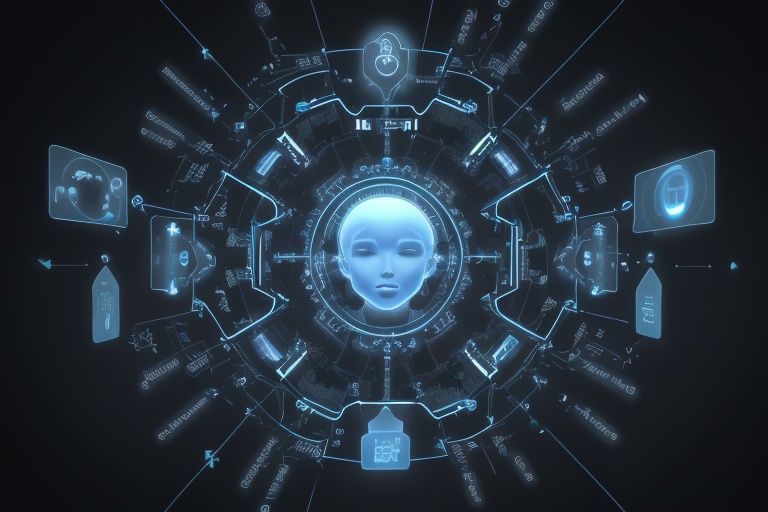The intersection of artificial intelligence (AI) and machine learning with drug discovery is poised to revolutionize the pharmaceutical industry. The pain points that plague the traditional drug development process—exorbitant costs, lengthy timelines, and a high failure rate—stand to be alleviated by the application of advanced computational technologies. The average price tag for bringing a new drug to market is an astounding $2.6 billion, with a significant portion of these funds lost due to unsuccessful attempts. In the quest to mitigate such inefficiencies, the biopharmaceutical sector is embracing AI and machine learning as groundbreaking tools for innovation.
The intersection of artificial intelligence (AI) and machine learning with drug discovery is poised to revolutionize the pharmaceutical industry. The pain points that plague the traditional drug development process—exorbitant costs, lengthy timelines, and a high failure rate—stand to be alleviated by the application of advanced computational technologies. The average price tag for bringing a new drug to market is an astounding $2.6 billion, with a significant portion of these funds lost due to unsuccessful attempts. In the quest to mitigate such inefficiencies, the biopharmaceutical sector is embracing AI and machine learning as groundbreaking tools for innovation.
Transformative Alliances in Pharmaceuticals
Several prominent players in the field have already begun to harness AI's predictive capabilities to expedite the drug discovery process. Take Pfizer, for example, whose partnership with IBM Watson aims to leverage machine learning in the identification of novel immuno-oncology drugs. By analyzing vast datasets, Watson can potentially pinpoint therapeutic opportunities that might have remained obscured without the power of AI.
Equally notable is the collaboration between French pharmaceutical giant Sanofi and UK-based start-up Exscientia. Through this partnership, Exscientia’s AI platform aids in the hunt for treatments for metabolic diseases. Meanwhile, Genentech, a subsidiary of Roche, taps into the AI resources offered by GNS Healthcare to advance their search for effective cancer treatments.
The Promise of AI in Drug Development
The advantages of incorporating AI and machine learning into drug discovery are manifold. They promise a faster journey from conception to market, significantly reducing research and development timelines. Reduced costs and heightened efficacy of treatments also sit high on the list of prospective benefits. However, this new paradigm is not without its skeptics. A debate persists around the absolute value of AI in this domain, yet there is a consensus amongst many experts that its role will be increasingly central in pharmaceutical research’s evolution.
Challenges and Opportunities for Scientists
This shift towards a more AI-integrated approach in drug discovery presents a dual edge of challenges and opportunities for scientists, particularly those who are in the early stages of their career. Knowledge of these tools and the acquisition of relevant skills are becoming prerequisites for staying competitive and effective in the field.
The Critical Role of Continuous Learning
To capitalize on the potential of AI, individuals like Bradley, who are involved in drug discovery, are utilizing AI technologies such as artificial neural networks to revolutionize the way compounds are identified and analyzed for new therapies. AI's capacity to sift through and make sense of large volumes of structural and chemical activity data—much of which is publicly available—has resulted in the identification of viable drug targets that might otherwise have gone unnoticed.
Despite the rapid progression within the field, it is essential for those interested in drug discovery to keep their finger on the pulse of technology. According to Bradley, while university programs lay a vital foundation, it is incumbent upon students and professionals alike to pursue self-directed learning to remain at the forefront.
Staying Ahead in a Rapidly Evolving Landscape
Engaging with cutting-edge research, following prominent scientific journals, and reading technology-focused news sources and blogs, is critical for keeping abreast of the latest in AI and drug discovery. The capacity to be versatile and adaptable, leveraging available tools effectively, is a significant asset in the industry.
Navigating the Hype Surrounding AI
Skepticism remains when confronting assertive claims about AI's potential to upend drug discovery entirely. Critics point to the influence of commercial interests and highlight the dearth of AI-developed drugs that have successfully navigated the approval process. Despite the existence of inflated narratives, individuals like Narain are confident that with time, the real impact of AI will become evident. The next few years are expected to unveil improvements in drug efficacy and a reduction in development expenses that are facilitated by AI and machine learning innovations.
Complementing Human Expertise
The journey of integrating AI into drug discovery is not about replacing human ingenuity, but rather enhancing it. AI is a potent instrument in a scientist's arsenal, augmenting processes and guiding research. However, the ultimate decision-making still resides with expert professionals. This synergy of AI tools and human expertise is what will truly catalyze advancements in the field.
The future of drug discovery, married with the robust capabilities of AI and machine learning, is vibrant with opportunity. It invites researchers to engage deeply with evolving technologies, while also maintaining a judicious perspective on their current and future roles. Through continual education and adaptation, individuals in the pharmaceutical industry can fully engage with AI's transformative potential. It's an undertaking that demands both enthusiasm for innovation and a prudent acknowledgment of the limitations inherent within today's AI landscape.
Information for this article was gathered from the following source.




